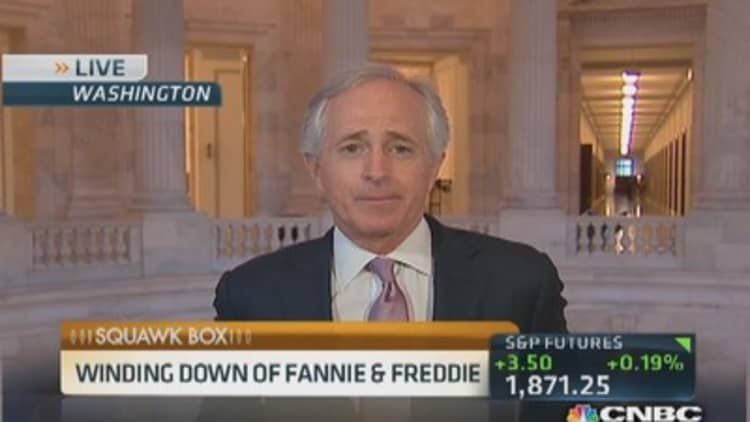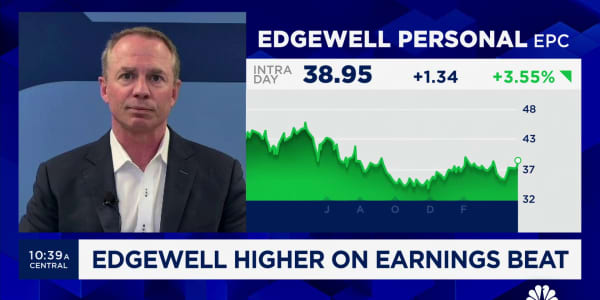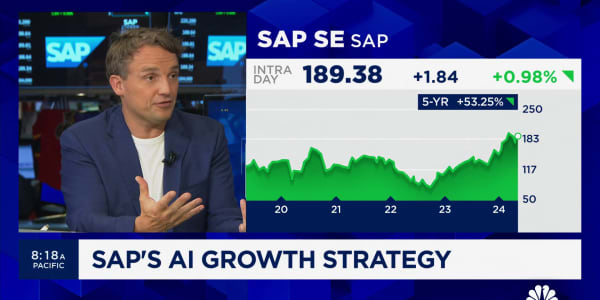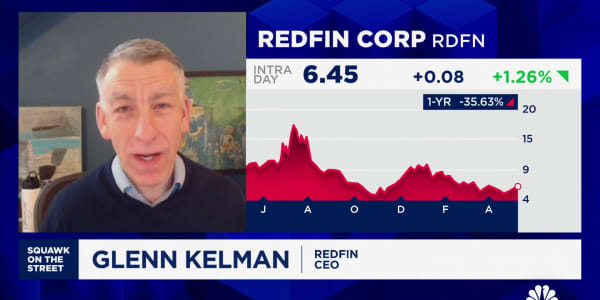Hedge fund managers appear unconcerned about the sharp price drops of Fannie Mae and Freddie Mac stock this week and remain committed to what could be one of the most lucrative buy-cheap, sell-high investments since the financial crisis.
Common shares of the two companies declined as much as 30 percent this week after the Senate Banking Committee announced an agreement Tuesday on legislation to wind down and eliminate the government-sponsored mortgage backers in favor of a reorganized Federal Mortgage Insurance Corp.
The proposal would see private investors taking the first 10 percent of losses. Preferred shares, which theoretically would be paid first in a liquidation, also fell—albeit not as sharply.
A slew of commentary followed from politicians, analysts, consumer advocates and others on the plan and its value. But a small group of hedge and mutual funds is ignoring the chatter and paper losses in hopes of a much bigger payday.
(Read more: Fannie stock dives after Senate bankers reach deal)
Those that remain invested in the preferred shares of Fannie and Freddie include Richard Perry's Perry Capital, John Paulson's Paulson & Co., Bruce Berkowitz's Fairholme and David Ford's Latigo Partners. Bill Ackman's Pershing Square Capital Management has a position in the firms' common stock. Representatives for those firms declined to comment or did not respond to requests.
Also reported to have positions in Fannie and Freddie are Jeffrey Altman's Owl Creek Asset Management, Kenneth Goodreau's TIG Advisors and consumer advocate Ralph Nader.

"All of the stuff that has gone on this week is absolute noise," said the manager a hedge fund invested in preferred and regular shares of Fannie and Freddie.
"We've known for a long time that Congress is shooting against Fannie and Freddie and that there could be no value for shareholders if they are successful," added the manager, who asked not to be identified. "None of that has changed and therefore our thesis has not changed."
The value of the funds' holdings have already appreciated significantly since many bought Fannie and Freddie stock for literally pennies after the government bailed out the agencies during the financial crisis. Both have gone up more than 1,100 percent over the last 12 months.
But there could be even more profit.
Two of the most prominent shareholders, Perry and Fairholme, are in the middle of litigation to receive payment on the preferred shares they hold.
"We remain focused on the rule of law and working through the courts to make sure the law is respected," said Matt McGill, a partner at Gibson, Dunn & Crutcher, which is representing Perry in its lawsuit. "The legislative process in the House and Senate is going to move at its own pace, but if the goal is for private capital to take the lead in a reformed system, the rights of private investors must be respected."

The government decided in 2012 it would keep any future profits on the stocks because of the risk taxpayers took in rescuing the agencies for $187.5 billion, a sum that is just now in the final stages of being repaid.
That decision to "sweep" profits to the U.S. Treasury essentially wiped out all shareholders, including those with the "preferred" status they theoretically have. Perry, Fairholme and others argue that the "sweep" decision is unconstitutional.
To earn the big payout the funds are targeting, two things likely need to happen: First, the courts need to overturn the sweep decision, which would allow Fannie and Freddie to begin accumulating profits instead of passing it on to the Treasury. Second, Congress needs to reform Fannie and Freddie without liquidating them, thereby allowing shareholders to start collecting the profits on their business.
If both things happen, that would mean big money for the investors—preferred shares of Fannie and Freddie are worth a face value of $33 billion today. But the same shares will likely be worthless if the funds lose in court and the new Senate liquidation legislation proposed this week passes.
(Read more: After Fannie and Freddie—Who's next?)
The recent congressional proposal does not address the investor issue and GOP Sens. Bob Corker of Tennessee and Mike Crapo of Idaho have said the courts should decide if the hedge and mutual funds are paid.
(Read more: Corker: Deal to end Fannie, Freddie is just right)
Separately, hedge funds that trade so-called "agency" mortgage-backed securities—packages of home loans made by the government-affiliated agencies like Fannie and Freddie—aren't concerned about their market going away.
"Even though the plan relies on private capital to take the first 10 percent of risk, I believe that the government will always step in as the mortgage lender of last resort, as it has been for the past six years," said Reza Ali, founder of $1.5 billion bond-focused hedge fund Prosiris Capital Management. "I do not believe politicians will permanently abandon the housing market when the next crisis hits and drives private capital away."
Another longtime government-backed mortgage investor said the Senate plan to attract private capital to the market would provide fresh trading opportunities.
"It actually creates a ton of volatility and uncertainty around the market, which for me as an investor is something that I think is enticing and I'm excited about," said Troy Dixon, a former senior mortgage trader at Deutsche Bank who is preparing the launch of a potentially $200 million hedge fund this summer, Hollis Park Partners.
"From my perspective I know you cannot shrink that market to zero so it's not like the market's going away, i.e. a non-agency market," Dixon added. "It's just too big a portion of our economy and the American dream to go away."
—By CNBC's Lawrence Delevingne. Follow him on Twitter @ldelevingne.






